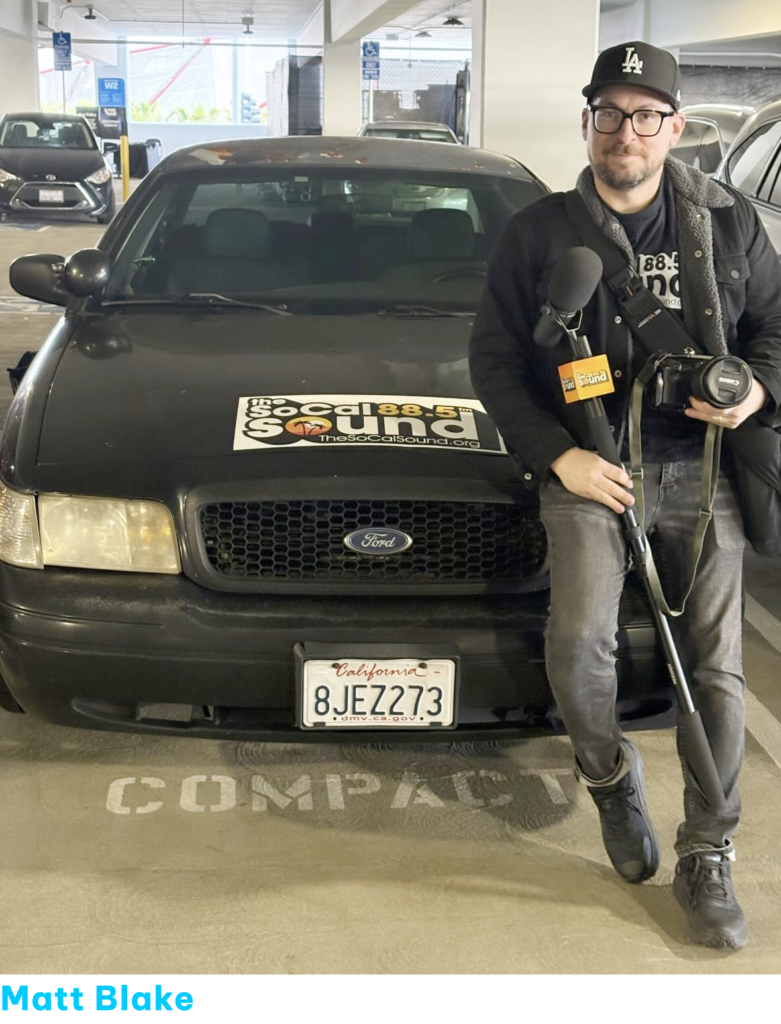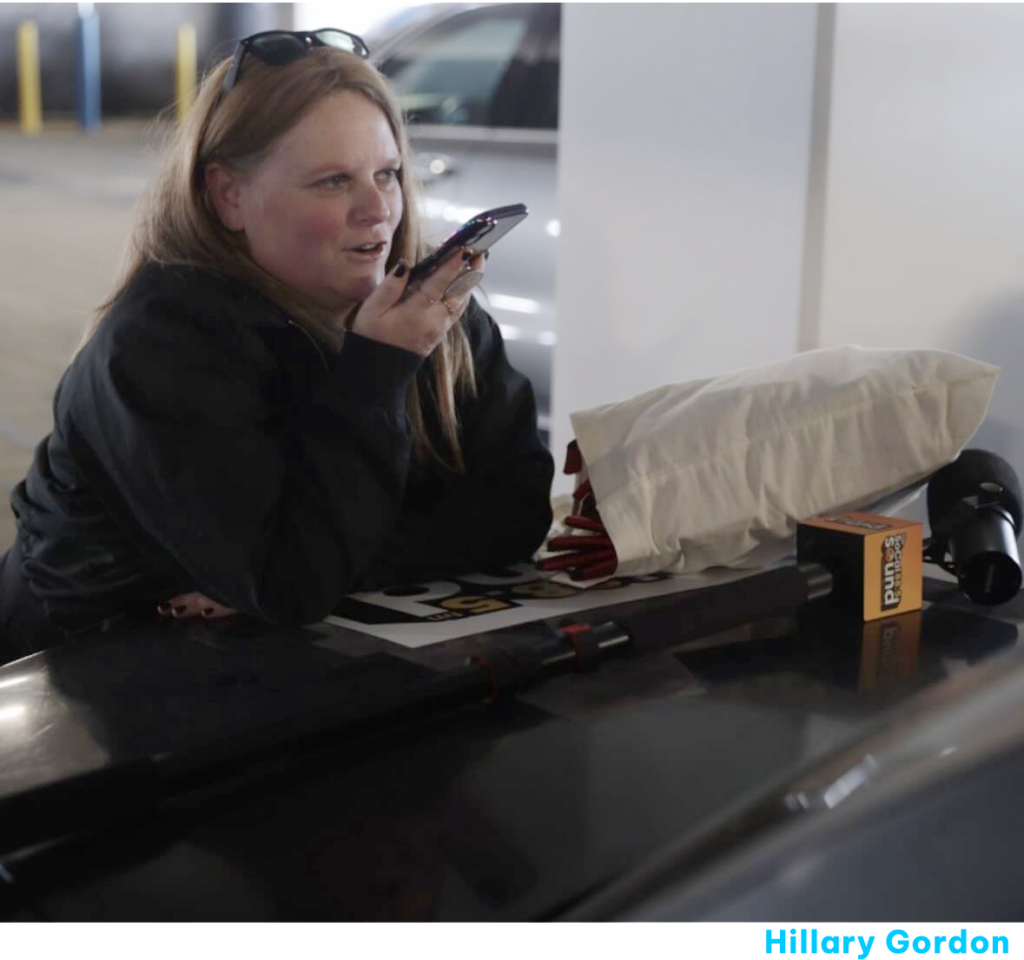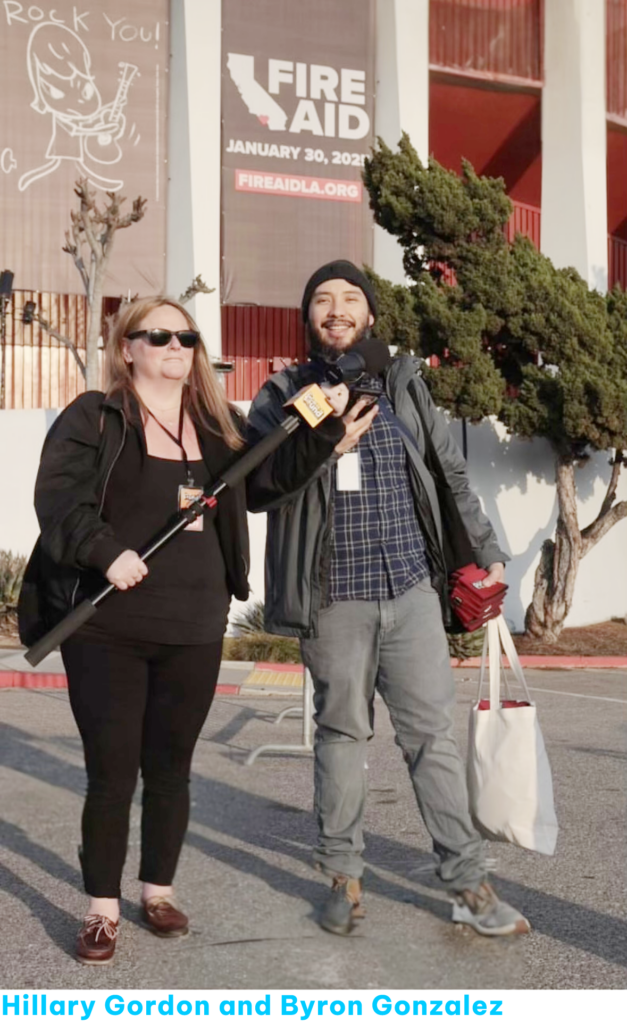January’s catastrophic fires in Los Angeles were an unwelcomed reminder of local radio’s critical role as a minute-by-minute information source. In addition to the news stations, local music stations also stepped up to provide their own form of disaster relief. The relief of music and fighting fire with music.
 Paragon client The SoCal Sound in LA implemented their own game plan, which began with understanding their role during disaster. Program Director Marc “Mookie” Kaczor and his veteran local air staff have learned from previous disasters. They know that maintaining the rhythm of their presentation is important while carving out the right amount of space for conversation and updates and comforting. The SoCal Sound became a comfortable safe space where a listener could lose themselves in the progressive rock music mix while knowing that they’re not going to lose touch with a fast-moving tragedy.
Paragon client The SoCal Sound in LA implemented their own game plan, which began with understanding their role during disaster. Program Director Marc “Mookie” Kaczor and his veteran local air staff have learned from previous disasters. They know that maintaining the rhythm of their presentation is important while carving out the right amount of space for conversation and updates and comforting. The SoCal Sound became a comfortable safe space where a listener could lose themselves in the progressive rock music mix while knowing that they’re not going to lose touch with a fast-moving tragedy.
Mookie’s disaster playbook for music stations includes three stages: build-up, chaos, and recovery. Learn more about it and in my Q&A with Mookie below:
Mike: You’ve had your fair share of natural disasters at music stations over the years. What are some of the events that have you’ve encountered?
Mookie: All of us have had to navigate through the COVID pandemic. A few summers ago, there was civil unrest in our community and of course the recent wildfires. We’re still recovering from that.
Mike: How did you navigate the disasters with staff? With audience?
Mookie: During COVID we thought long and hard about our role in this media market and within the community. Who are we? How can we help? We started to assert ourselves as somewhat of a “musical oasis.” Always putting community first, presenting all good music and none of the bad news, never taking a political stance.
 Mike: What role did The SoCal Sound play during different phases of a disaster?
Mike: What role did The SoCal Sound play during different phases of a disaster?
Mookie: We remain empathetic throughout, giving relevant information when needed, all the while keeping the song count high. We’ve seen different phases of each of the disasters we’ve encountered in recent years: the build-up, the chaos, the recovery.
During the chaos phase of the pandemic when the “gig-economy” shut down, some independent venues tried to pivot to streaming concerts. We were there to promote that type of ingenuity in our community. Livelihoods were at stake. We talked to our listeners about how they could support local venues and independent artists.
We are still in the recovery phase of the wildfires and the music community is stepping up big time! During this period, we are doing whatever we can do to help promote various fire-relief benefit shows around town. Brittany Howard of Alabama Shakes recently said, “Music is a cornerstone of society, and this is our service.”
Mike: What role do hosts on music stations play during disaster?
Mookie: Community advocacy has always been part of our mission. Our DJs are part of this community just like YOU. In the best of times, we present ourselves as real people! We frequent the same restaurants, grocery stores and beaches. We drop our kids off at the same schools. That earnest and genuine approach carries us through the good times and bad.
Mike: Have you adjusted the music mix during disaster periods?
Mookie: YES. During the riots it would have been poor taste to play a certain Kaiser Chiefs song. While the fires were happening, we wanted to be respectful of those who were affected, so certain songs were rested. A few Jimi Hendrix, Barnes Courtney, Franz Ferdinand titles would have been in poor taste.
 Mike: How has social media changed a music station’s ability to respond?
Mike: How has social media changed a music station’s ability to respond?
Mookie: We are extremely proud of the development of our web/social media content. The SoCal Sound is a multi-media organization at this point. Sometimes our platforms mirror the message on the air, sometimes not. We had a presence at the big FireAid event, talking with community members, showing support, posting to the web. We are doing the same at an Eaton Fire benefit event happening soon.
Mike: What kind of muscle memory have you developed to respond during disasters?
Mookie: The build-up, the chaos, the recovery. We’ve been through a lot, but now we’re tested. We know who we are, we know what we stand for and the community knows what to expect from the pillar of the community known as The SoCal Sound.
Mike: How do you know when you’re on the right track?
Mookie: A true test is coming…the first pledge drive since the wildfires. We’ll see if the audience responds. We’ll see if they see the value in what The SoCal Sound represents. I have a feeling that our radio station really resonates with people. Hopefully listeners will donate.
Mike: How do you avoid pandering and remaining credible?
Mookie: That can be tricky. Earnest and genuine show hosts help. No politics. No religion. Be there for your community. During a disaster, we’re all going through the same shared experience.
Mike: Do times of crisis create new local partnership opportunities to serve the station’s mission?
Mookie: We don’t have a roster of stations in a cluster. The SoCal Sound is a standalone Triple A station, but we have recently partnered with community news/talk The LAist (aka KPCC). We’ve mentioned on the air that KPCC can give our listeners a more in-depth report. We’re currently in talks with KPCC about collaborating on few charitable events. We’ve also worked with the LA Folk Festival with ticket proceeds benefitting fire victims. This was a wonderful collaboration between independent venue The Bellwether, the community of artists and the radio station.
More about Mike Henry.

Leave A Comment